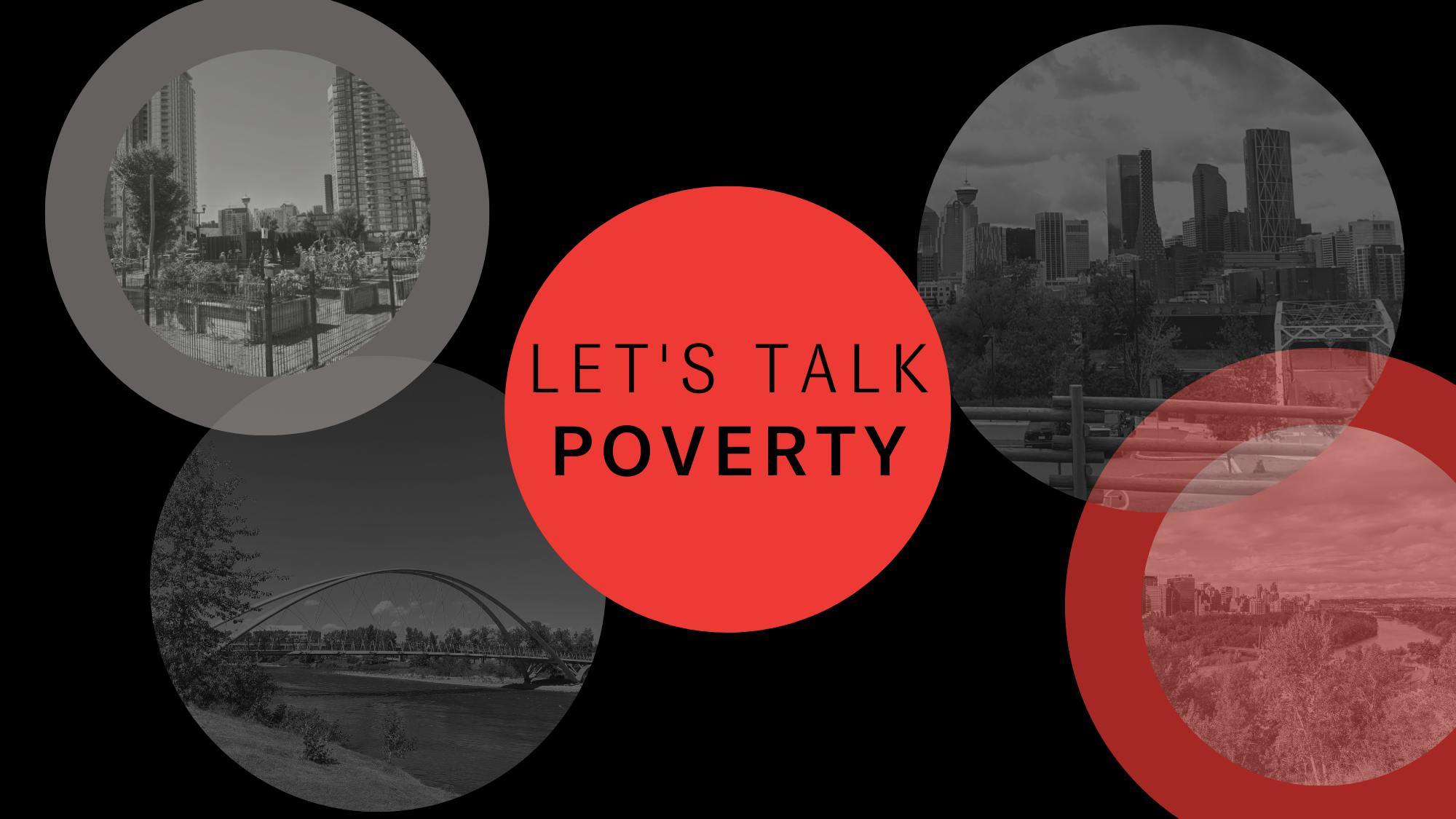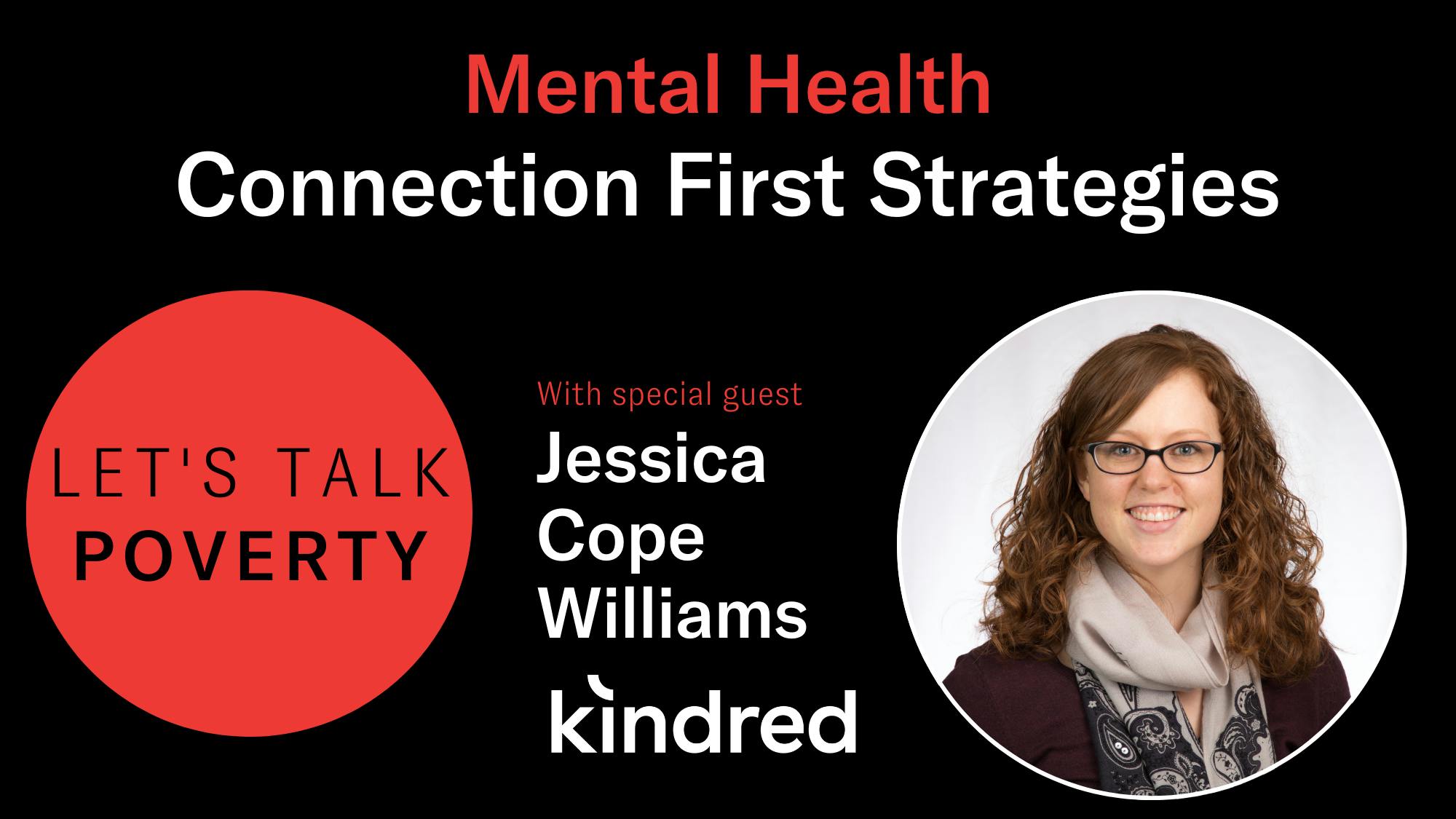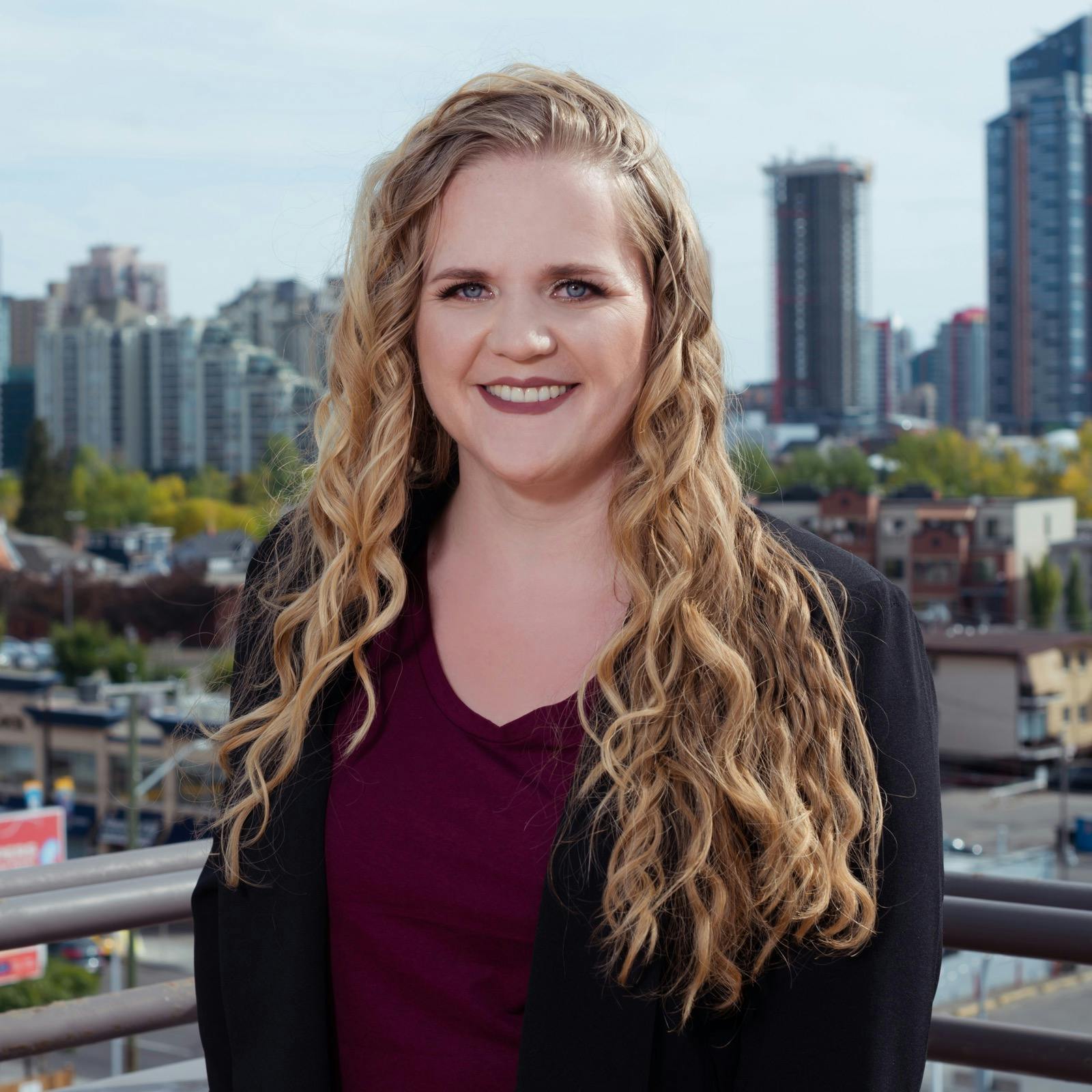In this episode, Jaclyn Silbernagel sits down with Jessica Cope Williams, Co-CEO of Kindred Connections Society, to explore how an organization’s name can act as a barrier to those trying to access services and what it means to be a connection first organization.
Podcast
Episode 14: Mental Health and Connection First Strategies
31 August 2022

Published 31 August 2022
Last Updated 12 December 2023

This episode of Let's Talk Poverty discusses connection, mental health, poverty and early parenthood, and the importance of responding to needs within a person’s whole system of connection. It examines why collaboration among organizations leads to greater accessibility to services.
In this episode
- Learn about how connection is the heart of everything and what it means to be a connection first organization.
- Examine how an organization’s name can act as a barrier to those trying to access services. Reflect on how a name can sit heavily, for example, the way that the word ‘family’ can create barriers for people. Understand how transitioning to be known as Kindred allows for more connection in community.
- Discussion about mental health and how reaching out for help is a brave act, and how that bravery demands that organizations work harder to shape better pathways to accessing services more easily.
Three key takeaways
- Why accessibility is critical to dignity and why it’s important that organizations work more collaboratively and collectively with other organizations to make access easier. An example of this in action is the partnership created with the organizations committed to Community Connect YYC.
- Like other places, we’re facing mental health challenges, and responding to those needs requires looking at a person’s whole system of connection.
- Some details on poverty and early parenthood. Discussion of how places like the Louise Dean Centre provide precise and intentional interventions, along with a judgement-free environment, to address the unique needs of individuals while equipping pregnant and parenting teenagers and young adults with educational and health care supports.
About Jessica Cope Williams
Jessica Cope Williams has worked with Kindred since 2006 when she started in a frontline service delivery role. She has a Bachelor's in Social Work (University of Victoria) and a Master’s of Arts in Leadership (Royal Roads University). Jessica’s ‘growing up’ at Kindred allowed for opportunities to work in all of Kindred’s programs, as well as in fund development and volunteer engagement. She is fuelled by a strong commitment to think differently about how to make services more accessible for clients, and she dreams of a system that doesn’t require navigation support. In her current role as Co-CEO, Jessica strives to live her mantra of “brave not perfect” and is a big believer in learning by doing. Jessica and her husband Tyler are proud parents to a 5-year-old daughter – who is already demonstrating leadership skills quite daunting to her parents. As a Calgary girl (born and raised), Jessica is fortunate to have the local support of her parents and in-laws, and her incredibly supportive husband, who help make it possible for her to be a present leader and a present parent.
About Kindred
For the last 65 years, Kindred Connections Society (Kindred) has been committed to providing barrier free services to all individuals and families. Kindred is convinced that the key to living well is healthy relationships with self, family, and others. Kindred’s purpose is to realize the power of human connection. Whether nuclear or chosen, family is the most important relationship in a person’s life, so they invest in the special bond between children and those that care for them. They provide road maps toward healing when essential relationships are ruptured, and they understand that accessing timely mental health support can inspire confidence with self and others.
Share your thoughts. Have an idea for us to explore or a question for us? Send us a message!
Focus Areas
Tags
Attribution

